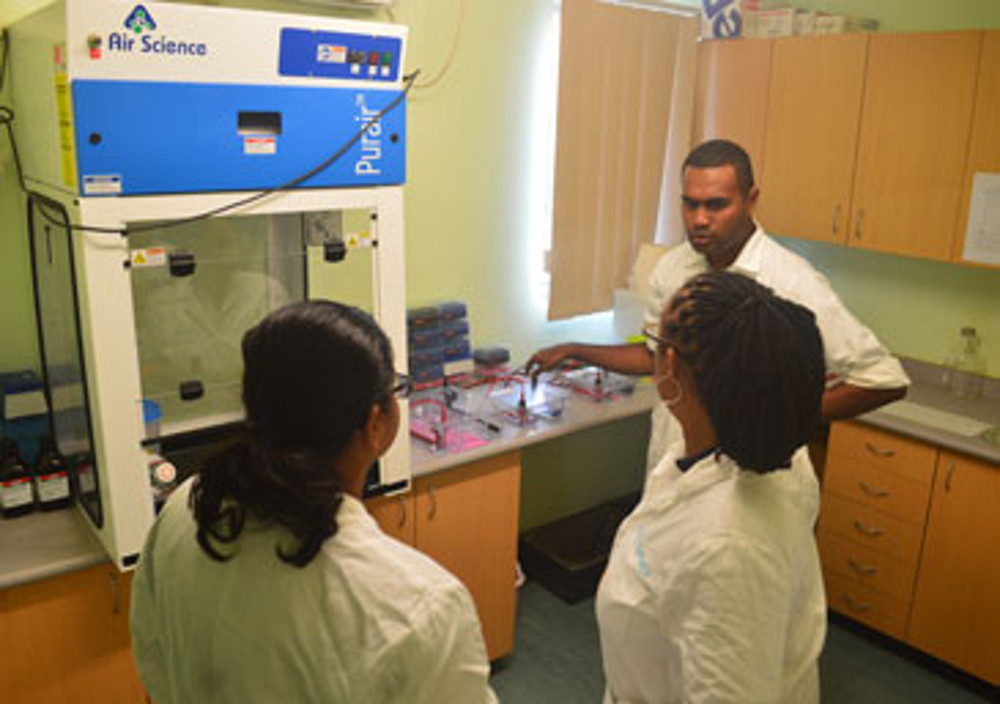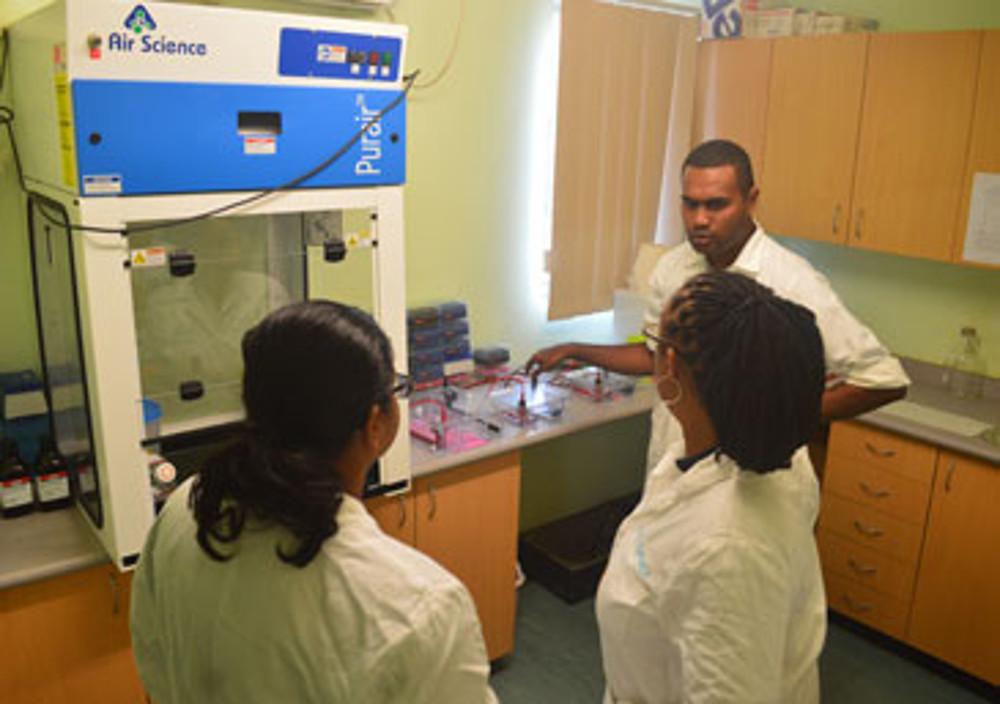 Two scientists from the Caribbean Agricultural Research and Development Institute (CARDI) are completing a short-term training attachment at the Pacific Community (SPC) Centre for Pacific Crops and Trees (CePaCT).
Two scientists from the Caribbean Agricultural Research and Development Institute (CARDI) are completing a short-term training attachment at the Pacific Community (SPC) Centre for Pacific Crops and Trees (CePaCT).
The scientists, Joan Petersen and Ariel Coolman, travelled to Fiji to learn about strategic vision and conceptual approaches that underpin plant genetic resources management with a focus on policies, international treaties, germplasm conservation, sharing and utilisation, databases, selection of varieties, soil health and organic farming, biotechnology and sharing of germplasms between countries, farmers and partners.
The selection of crop varieties in relation to resilience to climate change, diseases and nutrition in the fight against non-communicable diseases (NCDs) were also significant aspects of this exchange.
“We wish to thank and congratulate SPC for the opportunity for our scientists to be exposed to scientific collaboration of SPC’s high quality, internationally recognised Centre for Pacific Crops and Trees,” Head of CARDI’s Trinidad and Tobago Unit, Norman Gibson, said.
This is the second time that CARDI has supported the attachment of Caribbean scientists to CePaCT.
Last year, three scientists from Jamaica, St Vincent and Dominica were attached to CePaCT for almost two months, which was facilitated by the European Union (EU) supported inter-regional collaboration via the Intra-ACP Pacific Agriculture Policy Project (PAPP) under SPC.
“SPC is delighted to partner with CARDI on this initiative. Not only does this attachment contribute towards the establishment of a similar genebank model for the Caribbean under CARDI but it also fosters and supports strengthened knowledge sharing capacity that ultimately benefits the people of both the Pacific and Caribbean regions,” Pacific Community Deputy Director-General, Dr Audrey Aumua said.
CARDI is also part of the current SPC-EU adapting propagated crops to climatic and commercial changes and International Network for Edible Aroids (INEA) and has received 50 taro leaf blight tolerant varieties and other crop varieties from CePaCT which are being evaluated for resilience to climate and commercial changes in the Caribbean.
The two scientists will return to the Caribbean at the end of this month.
Media contact:
Salome Tukuafu, Information and Communications Management Officer, SPC LRD, [email protected]
Technical contact:
Valerie Tuia, SPC CePaCT Coordinator, [email protected]
Note to Editors:
The Pacific Community is the principal scientific and technical organisation in the Pacific region, proudly supporting development since 1947. Its Centre for Pacific Crop’s and Trees, in Fiji, is the region’s only internationally recognised genebank that also plays a vital role in conserving the world’s largest taro and aroid collections and disseminating improved crop varieties globally.
